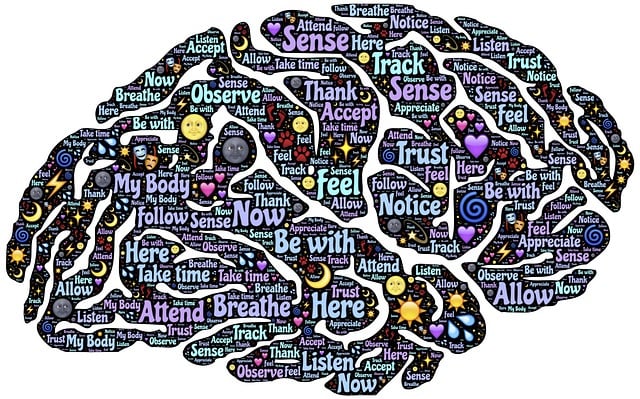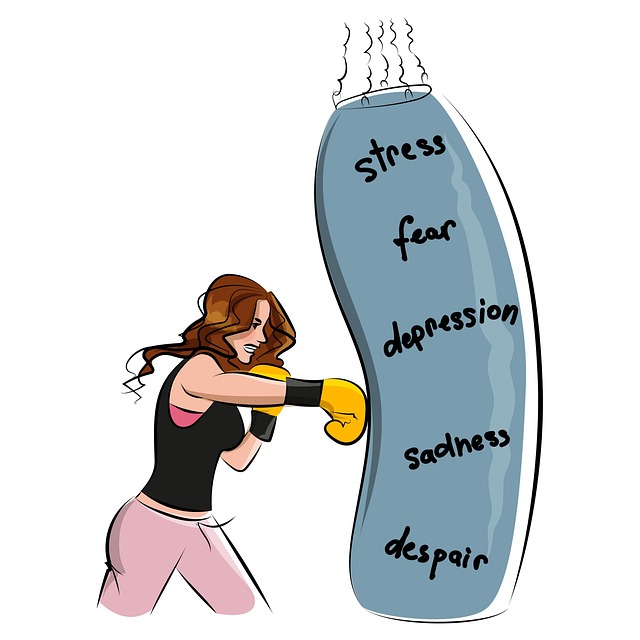Lafayette Blended Families Therapy offers comprehensive support for families dealing with substance abuse, addressing unique challenges through tailored interventions. They focus on root causes like adjustment disorders and mental health issues, teaching stress reduction and coping mechanisms through therapy and mindfulness practices. Their program includes family sessions, individual counseling, group support, and education to foster resilience, break intergenerational cycles of abuse, and reduce risks within blended families. By combining personalized approaches with community support, Lafayette Blended Families Therapy empowers families to manage mental wellness and promote long-term recovery.
In Lafayette, blended families face unique challenges that can contribute to substance abuse risks. This article explores comprehensive risk reduction strategies tailored for these dynamic households. We delve into understanding the complexities of substance abuse within blended families, emphasizing the importance of creating safe havens at home and fostering resilience through therapy. From individual counseling to group sessions, discover empowering techniques to build healthy coping mechanisms and lifestyle changes, ultimately enhancing the well-being of Lafayette’s blended family members.
- Understanding Substance Abuse within Blended Families
- Creating a Safe and Supportive Environment at Home
- Individual Therapy: Empowering Personal Resilience
- Group Counseling Sessions: Fostering Peer Connection and Understanding
- Building Healthy Coping Mechanisms and Lifestyle Changes
Understanding Substance Abuse within Blended Families

Substance abuse within blended families presents unique challenges due to the complex dynamics and potential trauma associated with step-parents and step-siblings. Lafayette Blended Families Therapy recognizes that every family is different, so their approach tailors support to individual needs. Understanding the root causes of substance abuse involves exploring underlying issues such as adjustment disorders, depression, or anxiety, which may be exacerbated by the transition into a blended family structure.
The journey towards recovery often begins with acknowledging the problem and seeking help through therapy sessions designed to teach effective coping mechanisms and stress reduction methods. Lafayette Blended Families Therapy emphasizes Mind Over Matter principles, empowering individuals to manage their mental wellness through mindfulness practices and positive self-talk. Their Mental Wellness Podcast Series Production offers valuable insights into managing everyday stressors and promotes open dialogue about sensitive topics related to substance abuse recovery.
Creating a Safe and Supportive Environment at Home

Creating a safe and supportive environment at home is a fundamental strategy in mitigating the risks associated with substance abuse, especially within blended families. Lafayette Blended Families Therapy emphasizes the importance of open communication and understanding as key components to fostering such an environment. Through regular family therapy sessions, members can learn effective stress reduction methods and compassion cultivation practices, which are essential tools for navigating the complexities of shared living spaces. By implementing these practices, families can enhance their emotional well-being, improve coping mechanisms, and reduce potential triggers that may contribute to substance abuse.
Additionally, regular risk assessments for mental health professionals involved in therapy sessions play a crucial role in identifying vulnerabilities and developing tailored interventions. This proactive approach ensures that each family member receives the necessary support and guidance, fostering a secure atmosphere where everyone can heal and thrive. Such an environment is essential for breaking intergenerational cycles of substance abuse and promoting long-term recovery within blended families.
Individual Therapy: Empowering Personal Resilience

Individual therapy plays a pivotal role in empowering individuals within Lafayette blended families to cultivate personal resilience against substance abuse. Through one-on-one sessions with licensed therapists, family members can explore underlying emotional triggers, process past traumas, and develop effective coping strategies. This tailored approach helps each person gain a deeper understanding of their vulnerabilities, fostering self-awareness that is crucial for making informed decisions regarding substance use.
The therapy process encourages the establishment of a robust self-care routine, which significantly contributes to better mental health and emotional healing processes. By integrating activities that promote well-being, such as mindfulness exercises and stress management techniques, individuals can proactively prevent depression and other mental health disorders. This proactive stance not only strengthens their resilience but also creates a supportive system within the family, ultimately reducing the risk of substance abuse.
Group Counseling Sessions: Fostering Peer Connection and Understanding

Group counseling sessions play a pivotal role in risk reduction strategies for substance abuse, especially within the context of Lafayette Blended Families Therapy. These interactive platforms bring together individuals facing similar challenges, fostering a sense of community and shared understanding. In this supportive environment, members can openly discuss their experiences, struggles, and victories, breaking down feelings of isolation often associated with addiction. By sharing stories, they gain valuable insights into different perspectives on substance abuse, enhancing empathy and peer connection.
Through group counseling, participants actively contribute to each other’s mental wellness by offering encouragement and practical advice. This collective approach complements individual therapy, as it broadens the support network and promotes a sense of accountability. Moreover, public awareness campaigns can utilize these sessions to educate peers about the risks and consequences of substance abuse, further emphasizing the importance of early intervention and prevention. Incorporating mindfulness meditation techniques into group counseling has also proven effective in reducing stress, improving focus, and reinforcing commitment to recovery.
Building Healthy Coping Mechanisms and Lifestyle Changes

Building healthy coping mechanisms is a vital component of any substance abuse risk reduction strategy. Lafayette Blended Families Therapy emphasizes the importance of teaching individuals and families effective ways to manage stress, anger, or difficult emotions without turning to substances. Through tailored Mental Wellness Coaching Programs, clients learn valuable tools like Mindfulness Meditation, helping them stay present and grounded in challenging situations. By fostering mental resilience and healthy lifestyle changes, these programs empower individuals to break free from the cycle of addiction.
In addition to individual coaching, Lafayette Blended Families Therapy offers comprehensive Mental Health Education Programs designed to equip families with knowledge and skills to support their loved ones’ recovery. These programs not only enhance overall family dynamics but also promote proactive risk reduction strategies. By integrating evidence-based practices into daily routines, families can create a supportive environment that fosters mental wellness and reduces the likelihood of substance abuse.
Addressing substance abuse within Lafayette blended families requires a multifaceted approach. By fostering a safe, supportive home environment, encouraging individual therapy for personal growth, and engaging in group counseling to build peer connections, parents and guardians can significantly reduce risks. Additionally, promoting healthy coping mechanisms and lifestyle changes ensures that children and teens have the tools to navigate challenges without resorting to harmful substances. Lafayette blended families therapy offers valuable resources for navigating these complexities and nurturing a healthier, happier family dynamic.














